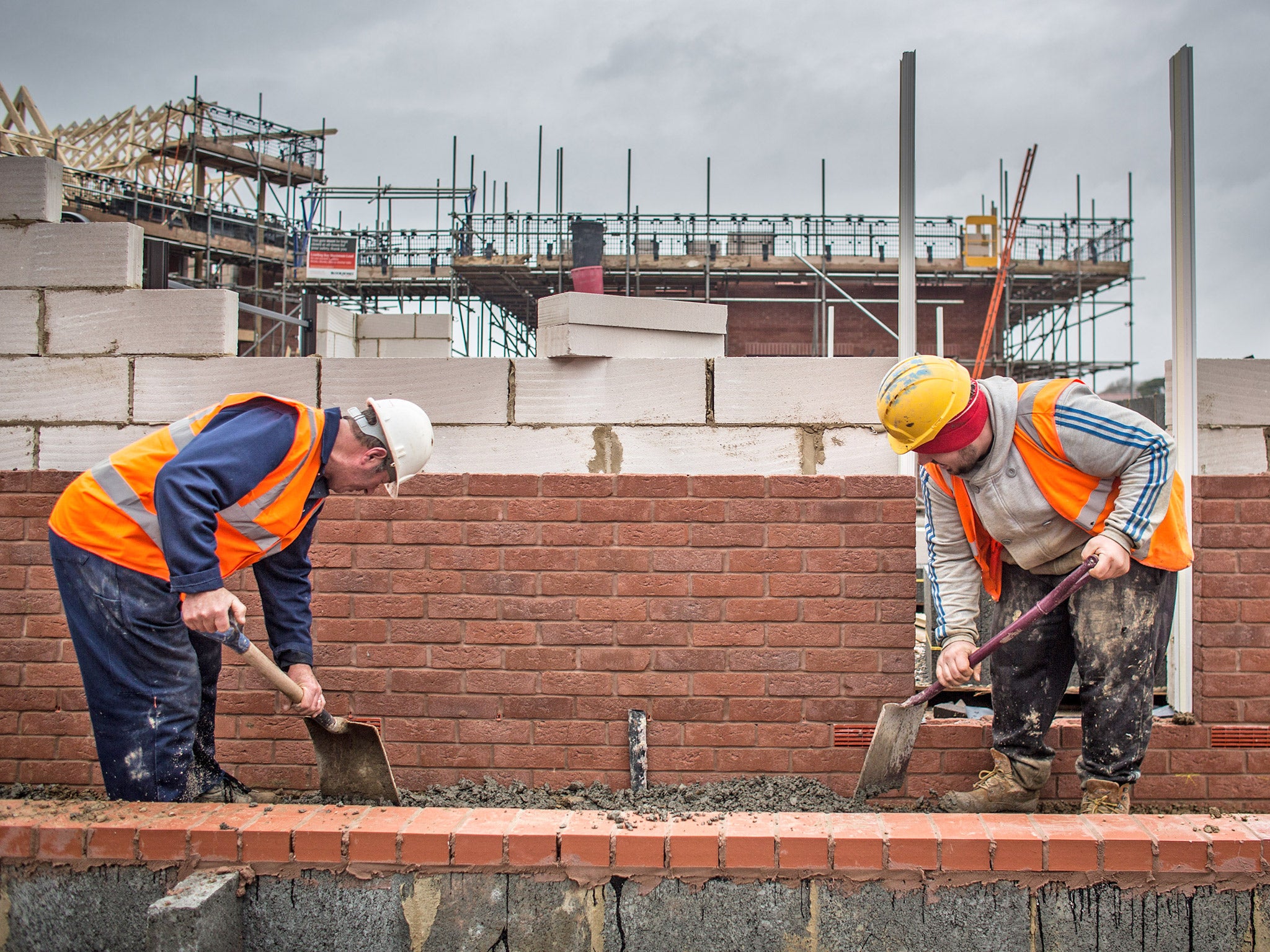615,000 new homes - that's what UK housebuilders could put up on their landbanks
Two major firms said cuts in council planning departments meant it was taking longer to get planning permission

The biggest housebuilders in the UK have enough land to build more than 615,000 new homes, according to a report.
As new figures showed the average house price was nearly £200,000, the Guardian revealed that the nine housebuilders in the FTSE 100 and FTSE 250 financial indexes had a total of 615,152 housing plots in their landbanks, according to their financial disclosures.
The four largest firms, Berkeley, Barratt, Persimmon and Taylor Wimpey, either own or have an option to build on more than 450,000 plots. Those firms have declared or issued more than £1.5bn to their shareholders in 2015.
The construction industry defended the rate of housebuilding, saying it had increased significantly in recent years. However two major firms said cutbacks in council planning departments meant it was taking longer to get planning permission.
Toby Lloyd, head of policy for housing charity Shelter, said developers did need to have a pipeline of available sites.
“But when housebuilding is still stubbornly low and landbanks are this large, it is a signal of how dysfunctional our housebuilding system is,” he told the Guardian.
“These are private companies so it’s reasonable for them to seek profits. But when their profits are so high we should be questioning why the Government is directing subsidies towards developers to build barely affordable starter homes and away from providing the genuinely affordable housing we so desperately need.”
A survey by the Nationwide building society found that the average price of a house in the UK was £196,999 in December after a 4.5 per cent rise over the year.
The Department for Communities and Local Government (DCLG) said it wanted to make sure that “anyone who aspires to own their own home has the opportunity to do so”.
“Our reforms have got Britain building again with the number of new homes up 25 per cent in the last year,” a DCLG spokesman said. “But we are far from complacent and have recently doubled the investment in housing to support the largest housing programme by any government since the 1970s.
“Housebuilders too should be playing their part to ensure we deliver the homes this country needs.”
John Stewart, of the Home Builders Federation, said: “Over the past few years housebuilding has increased output at the steepest rate for decades with the most recent figures showing a 25 per cent year on year increase in housing supply.
“The industry is recruiting and training tens of thousands of new people to ensure it can continue to deliver significant sustainable increases and provide the high quality homes the country needs.”
Berkeley said it was working on all plots with “implementable planning consent”.
“The challenge is often around getting conditions cleared for development, particularly on major regeneration sites, and the capacity within local planning authorities to work alongside us,” it said.
“In London, planning departments have been cut by more than 50 per cent over the last five years.”
Barratt said its output was 40 per cent higher than in 2011.
“This has been achieved whilst overcoming a number of well-publicised housing market challenges, particularly brick and labour shortages,” a spokesman for the firm said.
“We have an extensive programme of recruitment and we now have more apprentices in training than at any time since 2007. We have virtually no sites that have an implementable planning consent that are not in production.”
Taylor Wimpey said it was “committed to delivering quality and much-needed homes across the UK through the housing cycle”.”
“It is pleasing to see the government’s continued commitment to housing delivery,” the firm said.
But it added: “Whilst it is improving, the planning process is slow and complex and a number of conditions need to be fulfilled before development can commence on our sites.
“A shortage of resources in planning departments also often means that delays occur in this process … as soon as we have an implementable permission we begin development without delay.”
Subscribe to Independent Premium to bookmark this article
Want to bookmark your favourite articles and stories to read or reference later? Start your Independent Premium subscription today.

Join our commenting forum
Join thought-provoking conversations, follow other Independent readers and see their replies